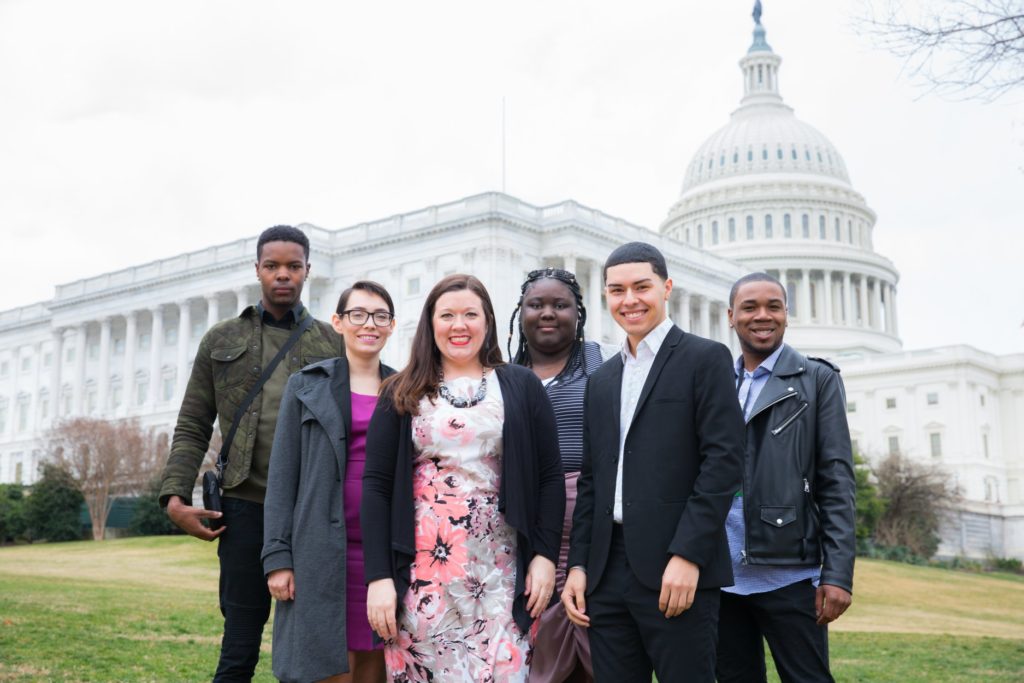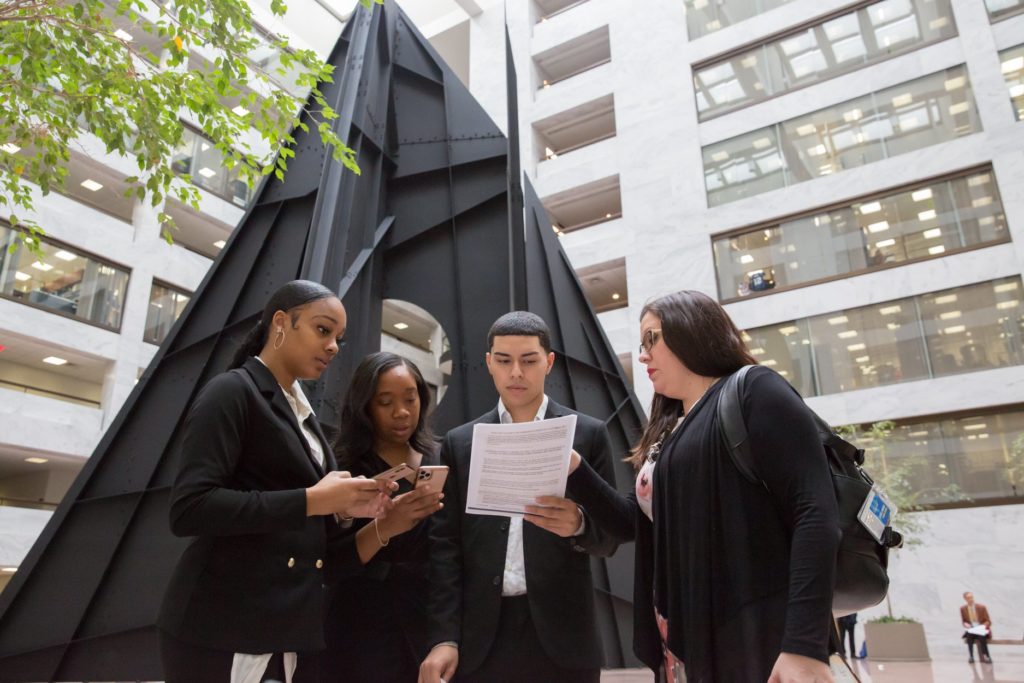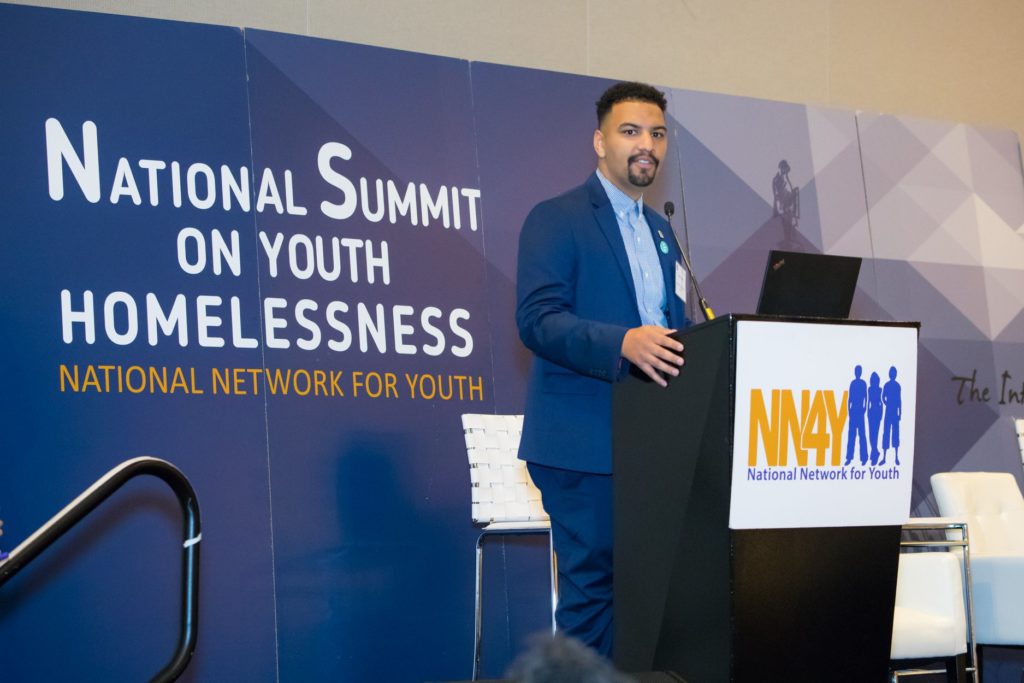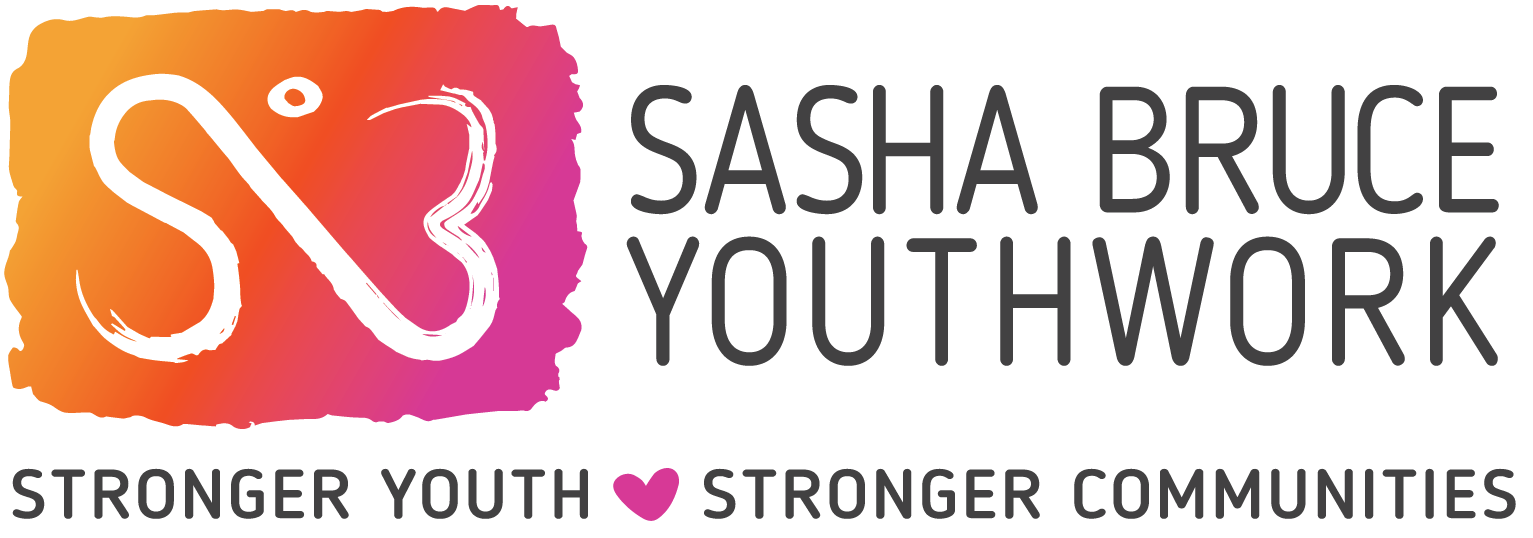We invited Darla Bardine, Executive Director of the National Network for Youth, a key Sasha Bruce Youthwork partner, to share about challenges and opportunities to address youth homelessness through federal policies and legislation.


Even before COVID19, solutions to support youth experiencing homelessness were already insufficient. The pandemic has made addressing this national crisis more urgent. The problem is complex and insidious. Homeless youth are often invisible, undercounted, and ignored by media, policymakers, and key decision-makers. But, ending youth homelessness is critical to preventing chronic adult homelessness, and addressing our nation’s growing population of homeless people of all ages.
The cause of youth homelessness is often seen as shortcomings of individuals and families. In reality, myriad factors cause it, including poverty, sexual orientation, abuse, and human trafficking.
Unfortunately, the media and influential decision-makers perpetuate these harmful misconceptions. This negative perception of our young people impacts our ability to build the political will to create policy change and ultimately harms young people in homelessness situations.
Youth experiencing homelessness remain hidden from the public and report being unable to find the support they need. Annually, one in 10 young adults ages 18-25, and one in 30 youth ages 13-17, experience some form of homelessness. They are more likely than their adult counterparts to stay with friends or family during this difficult period. More than half of these youth are experiencing homelessness for the first time. Only between 24% and 27% of Americans polled by Ipsos on behalf of the National Network for Youth (NN4Y), accurately estimated the size of this population.


What’s promising is that nearly 90% of respondents of the same poll believe that the success of youth and young adults will directly impact the success of their communities. Not only that, between 81-84% of respondents believe that both their state and the federal government should invest in reducing the incidence of youth homelessness and fund programs that help them finish high school and find jobs.
Young people at-risk of or experiencing homelessness are often unseen, overlooked by government programs, and left out of policy discussions.
Many are ineligible to access government programs to access public benefit programs that would help pay for food, health care, and other basic life needs because federal policy does not explicitly include them. The U.S. Department of Housing and Urban Development’s homelessness programs continue to primarily focus on serving chronically homeless single adults. Additionally, the emerging public health threat is posing tremendous challenges to agencies working to provide housing options and services to our young people in need.


Often, policymakers also lack an understanding of the unique challenges that youth experiencing homelessness face. As such, young people are left out of the policymaking process – despite being the most qualified to craft effective, youth-centric solutions and best advocates for change.
Take action today.
Ask your senators to cosponsor the bipartisan Emergency Family Stabilization Act (S.3923) which will provide flexible funding to community organizations working with youth and families experiencing homelessness in the wake of COVID-19.










